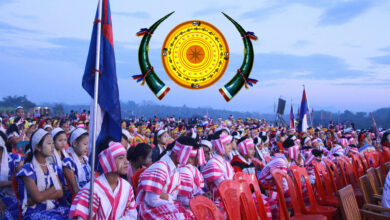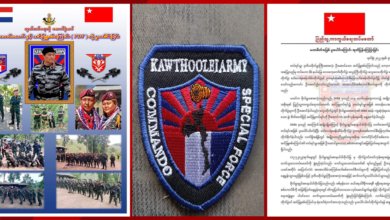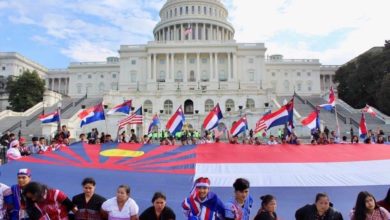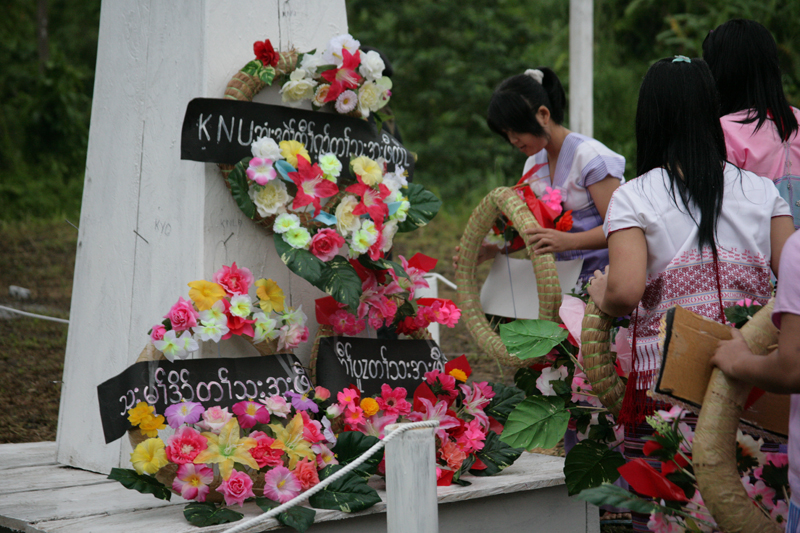Burma: Ethnic Nationalities Offer Hope For A Nationwide Ceasefire
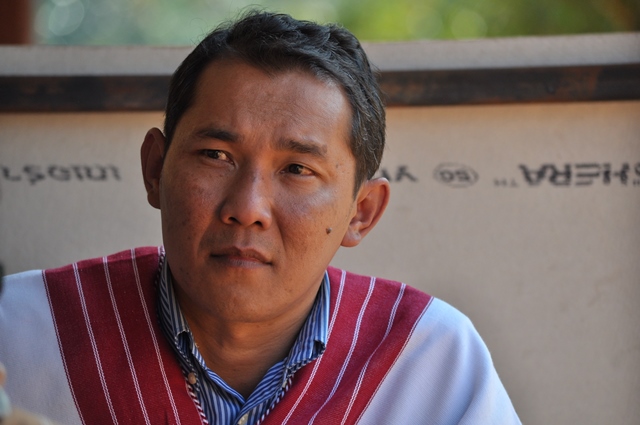
More than one hundred leaders from Burma’s ethnic armed resistance organizations gathered at Law Khee Lar, Karen State from January 20 to 24, 2014 to work out a plan for a proposed nationwide ceasefire agreement with the Burma government. The ethnic leaders met and discussed the future of Burma, including how to set up a federal army in the country. Dubbed a historic ethnic summit, it is a follow-up meeting of the Armed Ethnic Organization Conference held last month in Laiza, the headquarters of the Kachin Independence Organization, in Burma’s north.
“A nationwide ceasefire agreement is something we have proposed to the government before,” said Pdoh Zipporah Sein. “But, we don’t want to sign it just for show to the international community. We still need to create an on-the-ground situation in all ethnic areas that would be conducive for a nationwide ceasefire. ”
Pdoh Zipporah Sein, who is also the Vice Chairperson of Karen National Union (KNU) and one of the organizers of the conference, is determined to achieve a meaningful change in Burma that would allow ethnic nationalities to live in peace with dignity and have the right to self-determination.
“We want to stop fighting and we want peace,” said Pdoh Zipporah Sein. “But, only serious political dialogue will pave the way for lasting peace. A nationwide ceasefire agreement would only be the beginning to the end of decades of armed conflict.”
At the end of the five-day conference, Zipporah Sein said she was optimistic, calling the meeting of the ethnic armed resistance organizations – the second in two months – a “moment of political unity.” The conference continued its discussions on the 11-point agreement reached in Laiza that outlined its position on a nationwide ceasefire with the government. The ethnic organizations collectively concluded that a nationwide ceasefire is possible, if there is a guarantee that it will be immediately followed up with serious political dialogue.
Ethnic leaders are aware that a nationwide ceasefire agreement is not synonymous to a peace agreement. Ethnic leaders well understand that there is still a long way to go.
Confusion over a nationwide ceasefire and a nationwide peace agreement will only benefit the government’s public relations strategy, as it seeks to convince the international community that the country is has achieved peace and is ready for an influx of massive foreign investments.
When asked by journalists, who sent in their questions in writing, about solidification of Burmese troops and their outposts in the ethnic areas, Lt. General Baw Kyaw Heh, the KNLA Vice Chief of Staff, answered by phone. “There is no short cut to peace. If they (Burma government] don’t show us in practice that they are really for peace, how can we convince our people that the government is serious about peace?”
While ethnic nationalities are firmly committed to a peaceful solution to Burma’s political problem, it is the government – and the Burma Army – that needs to take the necessary steps towards real national reconciliation.
Ethnic leaders appeared upbeat about the conference outcomes and are eager for a political solution to the country’s decade-long civil war. After the Laiza conference, their proposal to establish a federal army of Burma that would include ethnic armed forces was dismissed in an ill-mannered attitude by Lt. General Myint Soe, the representative of Burma’s Commander-in-Chief, Sr. General Min Aung Hlaing. However, despite the previous hardline response of the Burma military, the ethnic leaders at the Law Khee Lar Conference seemed hopeful that the Burma Army will be more reasonable this time.
*Saw Kapi is the Director of Salween Institute (www.salweeninstitute.org). His opinion does not reflect that of Karen News’. He can be reached by email at sawkapi@yahoo.com.

